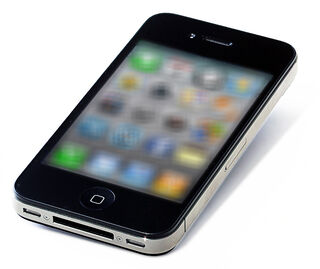Personality
Cell Phones Harm Classroom Performance... a Bit
A new study suggests using cell phones in class is bad, but not horrible.
Posted January 21, 2021 Reviewed by Matt Huston

With all of the discussions about multitasking in the popular press over the past decade, it should be pretty clear to most people by now that doing two things at once makes you worse at both. Yet, anyone who has ever taught a class knows that multitasking is rampant. Students check apps on smartphones during class. Others scan their emails or scroll through social media.
A paper by Andreas Bjerre-Nielsen, Asger Andersen, Kelton Minor, and David Dreyer Lassen in the November 2020 issue of Psychological Science tries to determine how badly cell phone use hurts performance in classes. This is hardly the first study to explore this question. As the researchers point out, though, previous studies suffer from several problems.
For one thing, it can be hard to figure out how much people are using cell phones in class—particularly when some studies ask people to rate their own degree of cell phone use. For another, even when studies use an app to measure cell phone use, they generally focus on getting a group of students at a single point in time. With these kinds of cross-sectional studies, it can be hard to rule out many other explanations for any observed relationship between cell phone use and performance. Perhaps students who are struggling with a class choose to use their cell phones to distract themselves from anxiety in class. Maybe students do poorly in classes that don’t interest them, and they choose to look at their cell phones because they are bored.
To address these limitations, the researchers followed 470 students in Denmark for up to two years. They measured cell phone use in class with an app that could determine when the cell phone screen was on. They had access to course grades for these students. They also measured a variety of personality characteristics, used the students’ high-school grade point average as a measure of overall school success, and looked at family information like parents’ mean income and parents’ level of education.
There were several interesting findings in this study. One was that cell phone use in class was generally negatively related to performance in college classes. However, cell phone use in class in college was also negatively related to the students’ high-school grade point average. So, either many students had a long habit of using cell phones in class or perhaps there was some other reason why poor-performing students tend to check their phones in class.
The researchers first analyzed the data as if it was like the cross-sectional data from previous studies. In this case, they looked at the average cell phone use in classes and overall grade point average for the students. Consistent with previous studies, there was a fairly large negative relationship between them, so that higher levels of cell phone use in class predicted much lower grades in class. This was true even when controlling for personality characteristics and other information they had about the students.
That would make it seem as though there is clear evidence that cell phone use has a big negative impact on grades in college courses.
However, they did a second set of more sophisticated analyses that took advantage of having repeated observations for the students. These analyses allow the researchers to use variations within people across different classes they took as well as variations within a class across different people to get a finer-grained look at the impact of cell phone use. This analysis allows researchers to deal statistically with many potential factors that could be influencing performance but weren’t measured.
When this comprehensive analysis was done, the apparent impact of using a cell phone in class was still negative, but it was actually quite small. That is, using a cell phone in class didn’t help performance, but it didn’t seem to have the kind of huge negative impact that should set off alarm bells.
When a new technology is widely adopted, we often worry it's going to have a damaging effect on people’s ability to function effectively. Often, the effects of new technologies are mixed. They make some things easier and others harder and most aspects of life are relatively unaffected. In the case of cell phones, multitasking is bad—but not necessarily so terrible that it will derail your academic career.
References
Bjerre, Nielsen, A., Andersen, A., Minor, K., & Lassen, D.D. (2020). The negative effect of smartphone use on academic performance may be overestimated: Evidence from a 2-year panel study. Psychological Science, 31(11), 1351-1362.


